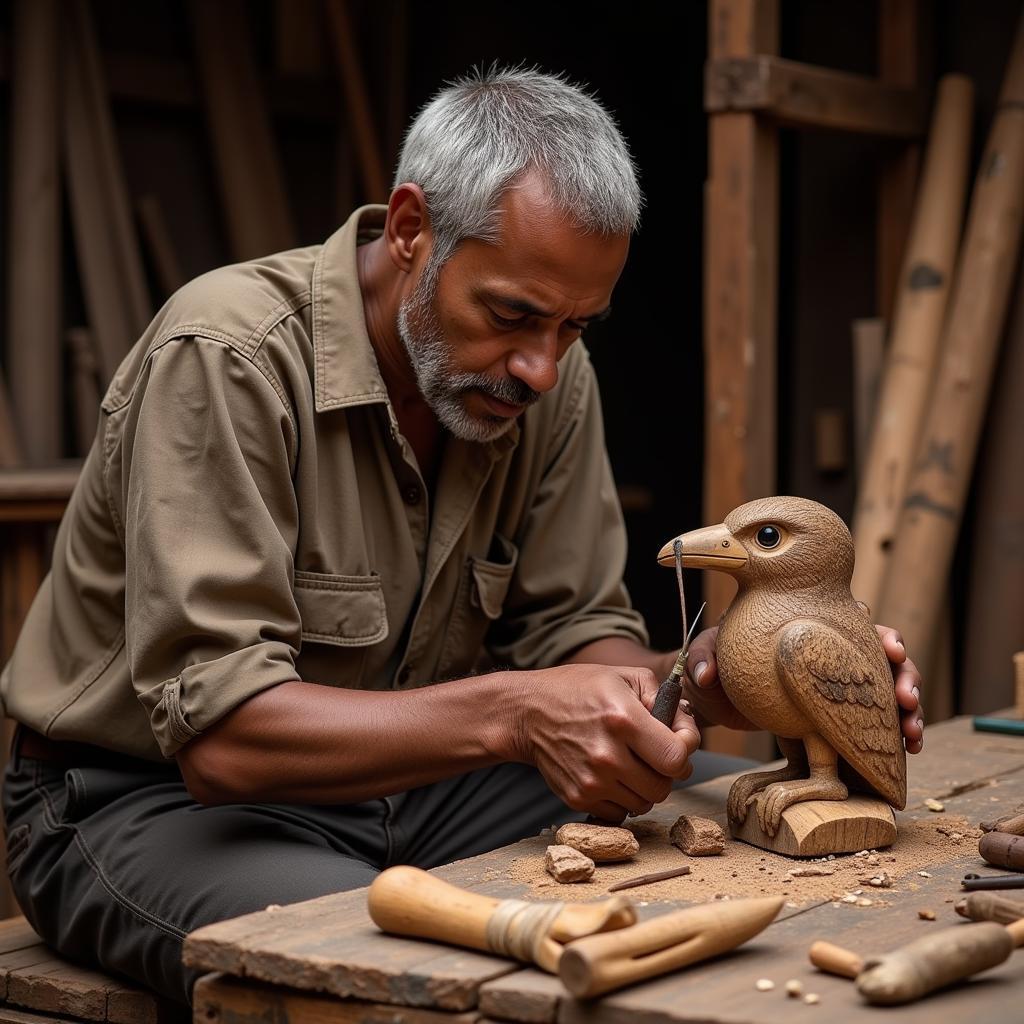The Undeniable African Influence in Brazilian Music
The vibrant tapestry of Brazilian music is undeniably interwoven with threads of African influence. From the rhythmic pulse of samba to the captivating chants of candomblé, the legacy of Africa resonates deeply within Brazil’s musical landscape. This article explores the profound impact of African musical traditions on the development of Brazilian music, examining its historical roots, key instruments, and enduring cultural significance.
Tracing the Roots: From Africa to Brazil
The African Influence In Brazilian Music began with the transatlantic slave trade. Millions of Africans, forcibly displaced from their homelands, carried with them their rich musical heritage. This included diverse rhythmic patterns, vocal styles, and instruments that would become integral to the formation of Brazilian musical genres. Early forms of musical expression, born from the pain of enslavement and the yearning for freedom, laid the groundwork for the diverse musical landscape of Brazil today. Check out more about the African influence on Latin America history.
One of the earliest and most significant examples of this fusion is the emergence of lundu, a genre that blended African rhythms with European melodic structures. This syncretic musical style, popular in the 18th century, represents a crucial step in the evolution of Brazilian music. Lundu paved the way for later genres like maxixe and choro, which further incorporated African elements while also embracing European influences.
The Heartbeat of Rhythm: African Instruments in Brazilian Music
African instruments played a vital role in shaping the distinctive sounds of Brazilian music. The berimbau, a single-stringed percussion instrument played with a bow and gourd, became synonymous with capoeira, a unique Afro-Brazilian martial art that combines elements of dance, music, and acrobatics. Want to know more about African Capoeira?
The atabaque, a tall, conical drum, became central to the religious ceremonies of candomblé, an Afro-Brazilian religion that preserves many Yoruba traditions. The pulsating rhythms of the atabaque create a trance-inducing atmosphere, connecting practitioners to their spiritual roots. Other instruments like the agogô (double bell) and the reco-reco (scraped instrument) also found their way into Brazilian music, adding layers of rhythmic complexity and texture.
Samba: A Symbol of Afro-Brazilian Identity
Perhaps the most iconic example of African influence in Brazilian music is samba. This vibrant genre, characterized by its infectious rhythms and call-and-response vocals, emerged from the Afro-Brazilian communities of Rio de Janeiro in the early 20th century. Samba became a powerful symbol of Afro-Brazilian identity and a source of national pride.
Beyond Samba: Exploring other Afro-Brazilian Genres
The African influence extends far beyond samba, permeating various other Brazilian musical genres. Afoxé, ijexá, and maracatu are just a few examples of genres that retain strong connections to African musical traditions. These genres often feature polyrhythmic structures, intricate drumming patterns, and powerful vocals that reflect the rich cultural heritage of their African ancestors. You can see an example of African Brazilian chut video online. Are you interested in learning more about African American martial arts? Or perhaps exploring the contributions of African American metal artists?
Conclusion
The African influence in Brazilian music is an undeniable and integral part of its identity. From the rhythmic foundations to the vibrant cultural expressions, the legacy of Africa continues to shape and enrich the musical tapestry of Brazil. This fusion of cultures has created a unique and dynamic musical landscape that continues to captivate and inspire audiences worldwide.
FAQ
-
What is the most iconic instrument of African origin used in Brazilian music? The berimbau is often considered the most iconic.
-
How did the transatlantic slave trade influence Brazilian music? It brought African musical traditions, instruments, and rhythms to Brazil.
-
What is capoeira? It’s an Afro-Brazilian martial art that incorporates music, dance, and acrobatics.
-
What is samba? A vibrant Afro-Brazilian musical genre and dance.
-
What are some other Afro-Brazilian musical genres? Afoxé, ijexá, and maracatu.
-
How did African music blend with other influences in Brazil? It combined with European melodic structures and indigenous elements.
-
What is the significance of the atabaque drum? It’s central to candomblé ceremonies and connects practitioners to their spiritual roots.
Other questions you might have:
- What is the role of music in Afro-Brazilian religions?
- How has African music influenced contemporary Brazilian popular music?
For more information on related topics, explore articles on our website about African American metal artists and African capoeira.
Need assistance? Contact us 24/7:
Phone: +255768904061
Email: [email protected]
Address: Mbarali DC Mawindi, Kangaga, Tanzania.



